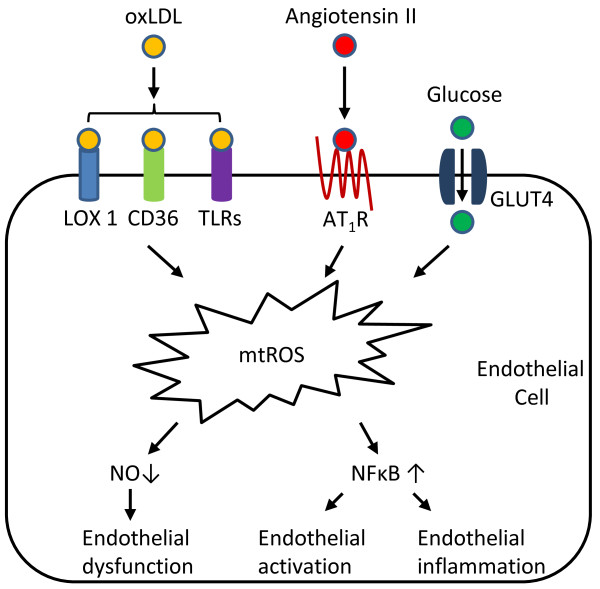Figure 5.
Role of endothelial mtROS in atherosclerosis. Pathologic stressors as diverse as oxidized low-density lipoproteins (oxLDL), glucose, and Angiotensin II are all capable of inducing mtROS in endothelial cells through their receptors. Excessive mtROS then directly bind to NO and induce endothelial cell dysfunction. Overproduction of mtROS also leads to activation of proinflammatory transcription factors such as nuclear factor kappa B (NFκB). This in turn increases the expression of adhesion molecules and production of inflammatory cytokines in endothelial cells, both of which contribute to the development of atherosclerosis. LOX-1: lectin-type oxidized LDL receptor 1; TLRs: Toll-like receptors; AT1R: Angiotensin II receptor, type 1; GLUT4: glucose transporter type 4.

